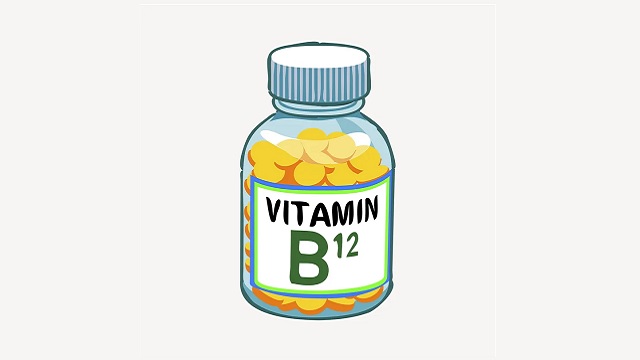What are the signs and symptoms of Vitamin B12 deficiency? Know here
B12 insufficiency and deficiency are relatively common. It is often overlooked and misdiagnosed. However there are some common signs.
B12 deficiency is a common health problem that affects an estimated 6% to 20% of the U.S. population. B12 is scarce in the diet, and it is found only in foods from animal sources. Fortunately, humans need only 2.4 micrograms of B12 daily, which is equivalent to one ten-millionth of an ounce – a very, very small amount.
Even though the vitamin is found in many foods and required in a very small amount, B12 insufficiency and deficiency are relatively common. This is often due to limited dietary intake, malabsorption, certain medical conditions, or the use of B12-depleting medications.
B12 levels above 300 pg/mL are considered normal, levels of 200–300 pg/mL are considered borderline, and levels below 200 pg/mL are considered deficient. Because the ability to absorb B12 from food declines with age, deficiency is more common in older adults. Still, that doesn’t mean children and younger adults, including those who are pregnant and breastfeeding, can’t develop B12 deficiency.
B12 deficiency is often overlooked and misdiagnosed. Oftentimes, this is due to inadequate laboratory testing or because the symptoms are not specific to vitamin B12 deficiency alone.
How much vitamin B12 is required?
The answer depends on things including your age, your eating habits and medical conditions, and what medications you take.
The average recommended amounts, measured in micrograms (mcg), vary by age:
- Infants up to age 6 months: 0.4 mcg
- Babies age 7-12 months: 0.5 mcg
- Children age 1-3 years: 0.9 mcg
- Kids age 4-8 years: 1.2 mcg
- Children age 9-13 years: 1.8 mcg
- Teens age 14-18: 2.4 mcg (2.6 mcg per day if pregnant and 2.8 mcg per day if breastfeeding)
- Adults: 2.4 mcg (2.6 mcg per day if pregnant and 2.8 mcg per day if breastfeeding)
Symptoms of vitamin B12 deficiency
Vitamin deficiency anemia usually develops slowly over several months to years. Signs and symptoms may be subtle at first but usually increase as the deficiency worsens. These may include:
- Fatigue
- Shortness of breath
- Dizziness
- Pale or yellowish skin
- Irregular heartbeats
- Weight loss
- Numbness or tingling in the hands and feet
- Muscle weakness
- Personality changes
- Unsteady movements
- Mental confusion or forgetfulness
Other signs and symptoms of B12 deficiency
In addition to the symptoms above, B12 deficiency may lead to the following:
- Muscle cramps and muscle weakness. B12 deficiency negatively impacts motor and sensory nerve function, which can cause muscle cramps and weakness
- Impaired coordination. Ataxia, or impaired balance and coordination, is a neurological symptom that can be caused by B12 deficiency. As such, a person with B12 deficiency may have difficulty walking and balancing
- Erectile dysfunction. Men with B12 deficiency may experience erectile dysfunction as a result of increased levels of homocysteine in the body
- Vision disturbances. B12 deficiency may cause vision disturbances, possibly due to damage to the optic nerve
How is B12 deficiency detected and treated?
Because vitamin B12 deficiency symptoms aren’t specific to the condition, it may go undetected or get misdiagnosed.
If you’re experiencing any of the symptoms listed above, it’s important to discuss them with a healthcare professional.
This is especially relevant if you:
- follow a restrictive diet, like a vegan diet
- are over the age of 60
- are pregnant or breastfeeding
- have a medical condition that can deplete B12 levels
- take a B12-depleting medication, like metformin or proton pump inhibitors
In addition to learning about your symptoms and giving you a physical exam, a healthcare professional can rule out a B12 deficiency by ordering blood tests.
These tests can include:
- B12 levels
- folate levels
- a complete blood count (CBC) with a peripheral smear
- methylmalonic acid (MMA) levels
- homocysteine levels
If you’re diagnosed with too low B12 levels, your healthcare professional will recommend the most appropriate treatment. It may include B12 injections, oral B12 supplements, or addressing an underlying health condition that could be causing the deficiency.
If low dietary intake is the cause, increasing your intake of B12-rich foods, like fish and shellfish, organ meats, and eggs, is a good idea.
If you follow a vegan or vegetarian diet, enjoying B12 fortified foods, like nutritional yeast and plant milk, and taking a B12 supplement can help you maintain optimal levels.
B12 injections are generally recommended for people who can’t properly absorb B12 from food or supplements, like those who’ve undergone gastric bypass surgery or people with certain autoimmune diseases.
B12 supplements and injections are considered safe and well-tolerated, even in large doses.
NOTE: The information contained in this article is for educational and informational purposes only and is not intended as health or medical advice. Always consult a physician or other qualified health provider regarding any questions you may have about a medical condition or health objectives.




 Ms Kalinga
Ms Kalinga